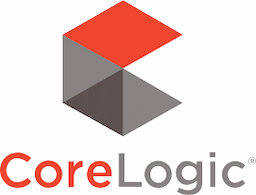Buying a property could look a lot different in the future as artificial intelligence and technology continue to develop.
Think beyond online forms and digital signatures and envisage borrowers receiving offers of boat loans because they’ve walked onto a jetty or home loans because they’ve walked into an open home.
You might not have to scan your crystal ball too hard to see what that might look like. According to experts at CoreLogic, with open banking and property data this will soon become a very real scenario.
Greg Dickason CoreLogic’s head of global technology said, “I think we’re very close to a place where you walk into a house and it knows where you are. One, because you’ve told it: You’re very much going to go into a world where your data you control much more tightly.
“They can say you’ve walked into this house, we know that you’ve got a deposit of 20%, we know you earn this much, and therefore we will lend to you at this interest rate and if you accept that now you get the loan.
“They’ll use data from us on the value of the property and they’ll use data from the open banking world. Now take those two together and make an awesomely quick and effective decision for you as a customer and I expect you’ll almost have a bidding process while you’re talking to the real estate agent about making an offer.”
Not only is technology going to change the way borrowers are potentially offered loans, it is creating a completely new method for valuing properties.
CoreLogic has been working on machine learning models to understand what properties are worth. The team have also been developing models where they simply use the imagery of the property and the location to assess the value.
But Scott Matthews, principal analytics architect at CoreLogic, said machines were not planning on making humans redundant just yet.
“I think machines will get us so far,” he said. “What we’re using our AI machine learning approaches to do is to help in those better defined parts of the market, get a better understanding of what a property might be worth.
“What’s more difficult to understand is what an individual might see that property as being worth based on their own experience. They fall in love with the property or pay more or less depending on their own experience on where they are in the property purchasing cycle.
“I see this technology as really assisting what [humans] are doing, so helping them make better decisions.
“It’s more about augmenting what valuers are doing and also what brokers are doing. One, helping for the customer’s experience get a faster decision made and two, giving the banks a greater level of transparency and scrutiny around how some of the valuation models work. So I see the two working well together.
“There’s still a personal relationship where humans like buying from humans so that’s hard to model and replicate.”
In terms of open banking and how it’s used to obtain home loans, Dickason believes mortgage advisers will still have a part to play.
He said, “It’s all about trust. For advisers it’s about, how well do I have a relationship with you? And how long can I maintain that relationship?
“Because open banking means I’m going to share my data with people I trust, and only the people I trust. If that’s the adviser then they are the ones who stand to benefit.
“If you’re thinking transactionally, that I only get to know you when you are in the market for a mortgage and then I sort of forget about you then I think you’re in trouble as an adviser.”
